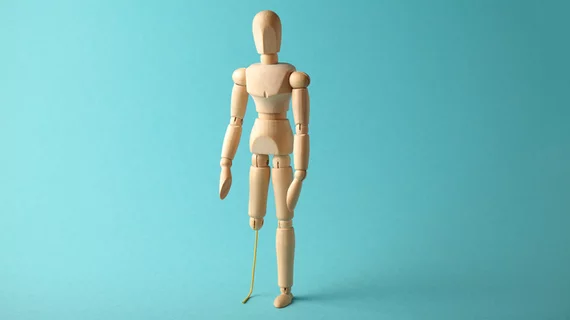Bill would bolster coverage of interventional radiology services to help Americans avoid amputations
Radiology advocates are voicing support for a recently unveiled bill that would bolster coverage of services to help Americans avoid losing their limbs due to peripheral artery disease.
Rep. Donald Payne Jr., D-N.J., recently reintroduced the Amputation Reduction and Compassion Act in the U.S. House with bipartisan backing. The legislation would require Medicare, Medicaid and health plans sold on federal exchanges to fully cover screening tests for at-risk beneficiaries.
Peripheral artery disease occurs when blood flow is reduced to the arms or legs due to blockages. Some 21 million Americans grapple with PAD and 200,000 will require amputation. Yet these drastic actions can be prevented with early screening, diagnosis and treatment.
“Patients deserve to know and have access to all treatment options,” Society of Interventional Radiology President Matthew Johnson, MD, an IR and professor of radiology research at the Indiana University School of Medicine, said in a statement. “With noninvasive screenings, the ARC Act will empower patients to make informed decisions about their peripheral artery disease treatment. The earlier we are able to catch and treat PAD, the more likely we are able to avoid amputations and preserve patients’ quality of life.”
The bill would additionally disallow payment for nonemergent amputations unless anatomic testing had been performed in the three months prior. And it would provide resources for PAD education, with a particular eye on at-risk populations, including racial and ethnic minorities, experts noted. Black Americans are more than three times likelier than whites to experience nontraumatic amputation, with Latinos and Native Americans also at higher risk.
Along with the Society of Interventional Radiology, others voicing support for act include the Association of Black Cardiologists, the Cardiovascular Coalition, the Preventative Cardiovascular Nurses Association, and the Society for Cardiovascular Angiography and Interventions. The bill has eight cosponsors.

